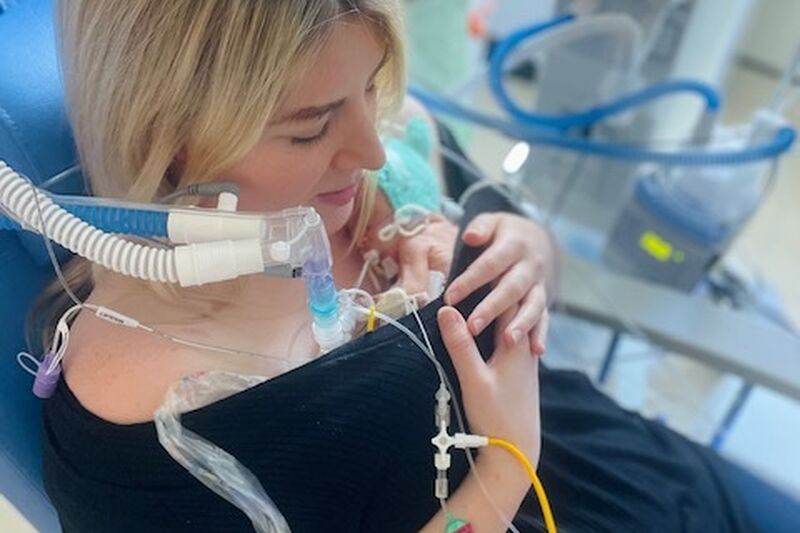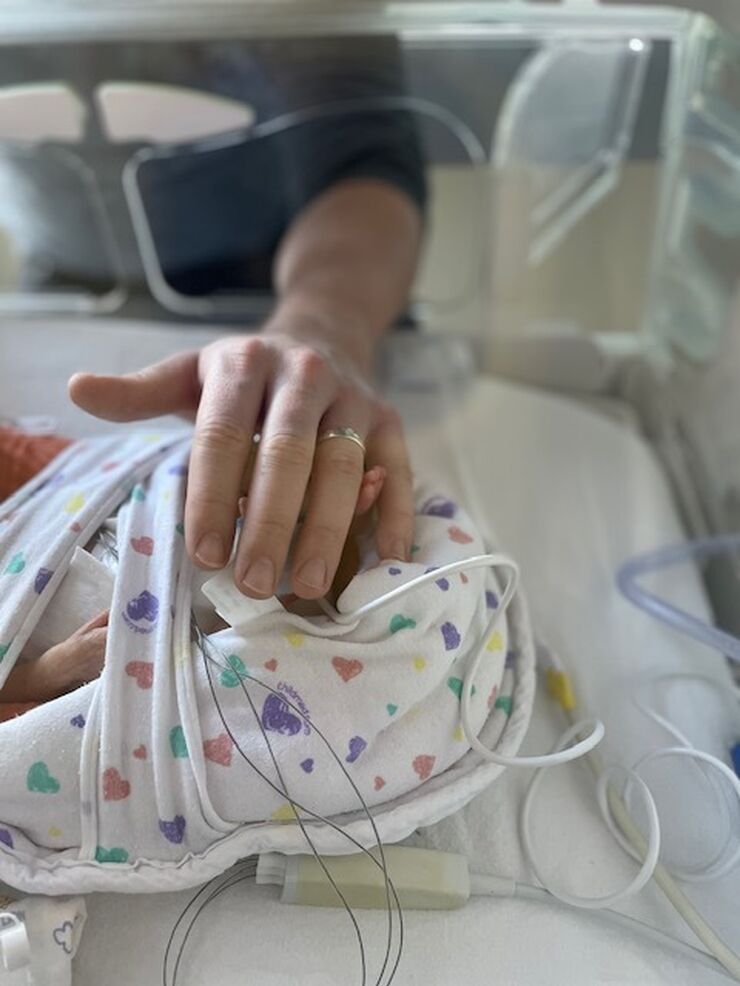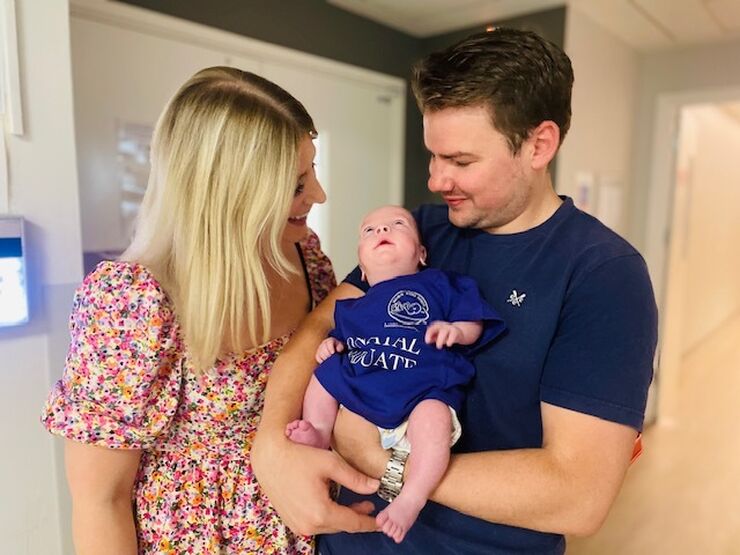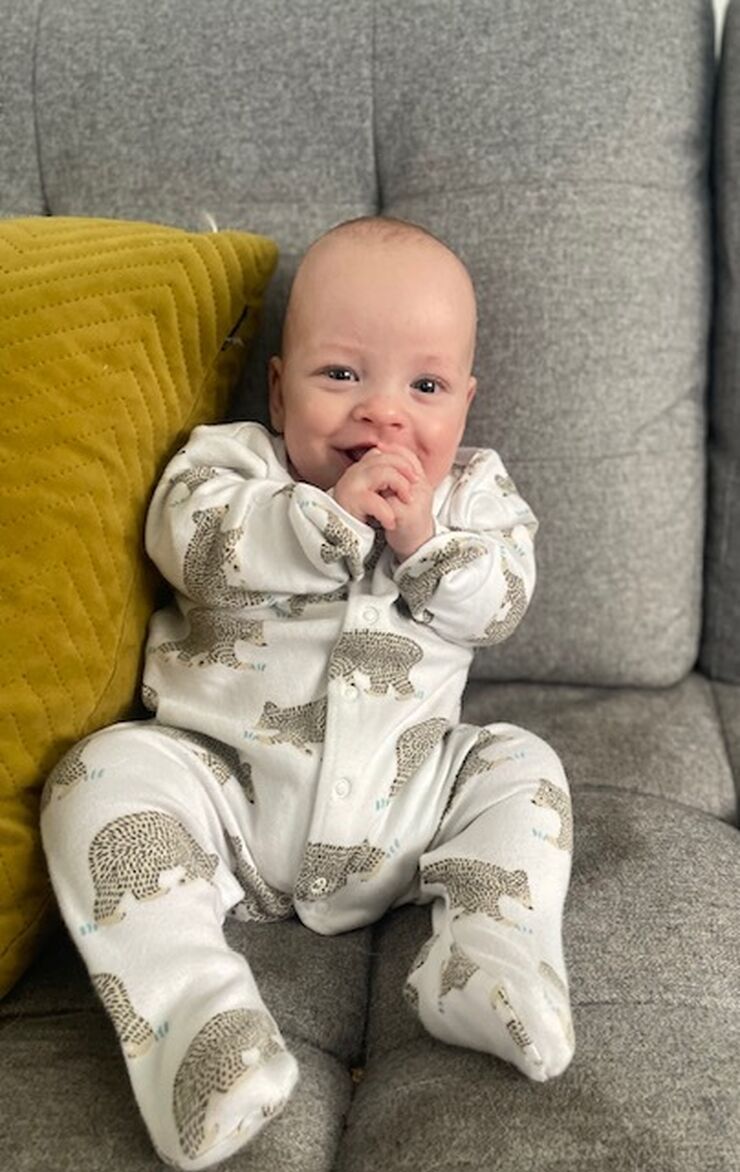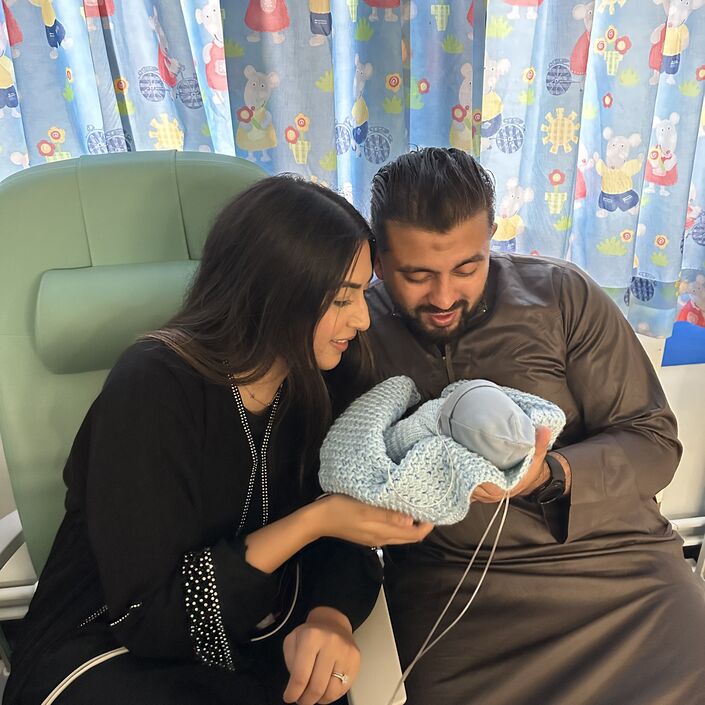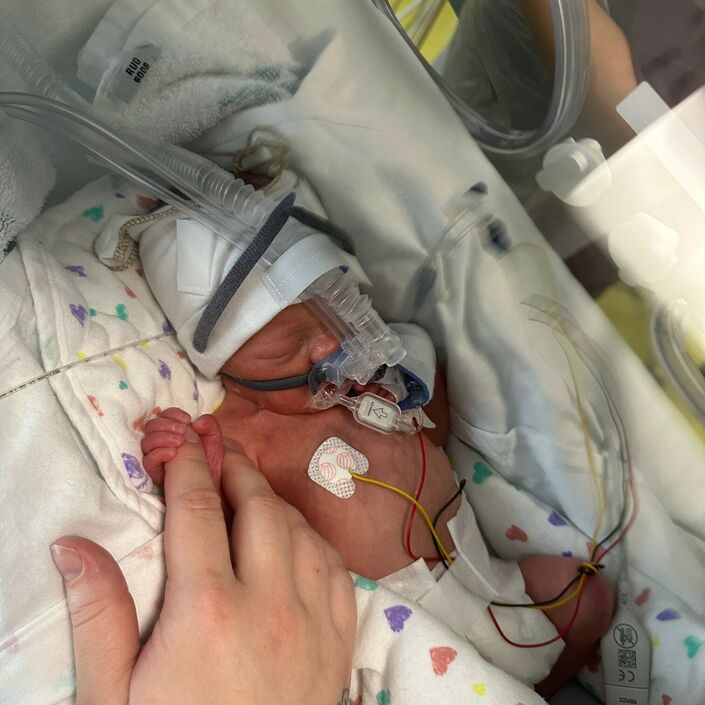At 23 weeks of pregnancy, I felt something changing in my body. I went into the hospital multiple times only to be sent home after getting checked over. After the third time of being sent home I started to get pain. At this point I was 24 weeks and two days pregnant.
After experiencing a dull ache most of the night, every three to five minutes, I begged maternity triage to let me come in as I was in a lot of pain. When I was eventually checked out, despite telling me it was likely a UTI or something I’d eaten, I was wheeled into a delivery room. I was utterly confused, overwhelmed but in a sense, grateful that I finally felt I was being listened to.
Then, all hell broke loose. I had multiple people running in the room, explaining I was in labour and dilated. They believed my waters had already broken and they didn’t know how long I had before I gave birth but would do everything they could to stop it.
Even though it was all quite dramatic, I was relaxed as I thought there was no chance I was actually going to give birth. I was given multiple drugs and the most painful injection of my life (magnesium) before the consultant told me they weren’t equipped to deal with babies born before 28 weeks and I would need to be transported by ambulance to a level three hospital – St George’s.
My husband called his parents and asked them to pack a hospital bag as we weren’t prepared - I wasn’t even sure what anyone needed to give birth - I planned to do all my research in my third trimester! My husband wasn’t allowed in the ambulance as multiple people had to travel with me, including a midwife ‘just in case’.
I was blue-lighted to St George’s and taken straight into a delivery room. We were met by a neonatal consultant who told us the odds of our baby surviving if born now, and if they did survive, what that meant in terms of his long term health prospects. Looking back, the numbers were terrifying but I believe my mind went into protection mode, I kept saying to everyone not to worry as I know it’s going to be fine.
A positive mindset was vital in getting me through the delivery. I kept saying there’s no point in troubling trouble, until trouble troubles you (something my mum always says).
The hospital did everything they possibly could to stop our little one coming out but he wanted to see the world and there was no stopping him. Less than 24 hours after arriving at the new hospital, I gave birth at 24 weeks and four days to a little boy called William weighing 740g.
We watched them work on him for 30 minutes where he wasn’t breathing and had to be intubated. I was fortunate enough to have a ‘birthday cuddle’ as they placed him into a towel and once he was stable, put him in my arms. He was so small we couldn’t even see him in the towel before he was whisked away into intensive care.
The hormone dump then happened and the realisation of the last three days finally hit me, I have never felt so low in my life and so hopeless than in the first few days. We were told to prepare ourselves; his lungs were so under-developed that they were like little raisins.
It was a constant fight to keep him alive. Will had two grade two brain bleeds, bleeding from his lungs and his stomach, serious burns over his lower half of his body because his skin was so underdeveloped, and his weight kept dropping. I was placed in the maternity ward with the other mothers who all had their babies with them.
